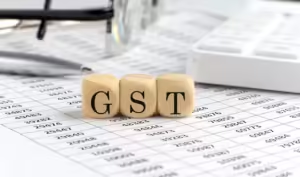
Introduction
In today’s competitive business environment, small businesses in India face the challenge of optimizing every rupee. Taxation plays a crucial role, impacting cash flow, profitability, and even growth. Effective tax planning can help business owners retain more profits, reinvest in growth, and keep operations stable. This guide will delve into essential tax-saving strategies tailored for small businesses in India, covering deductions, exemptions, and benefits available under Indian tax laws.
Understanding Tax Deductions for Small Businesses
Tax deductions are expenses that can be subtracted from taxable income, reducing the tax burden on small businesses. Here are some major deductions small businesses can take advantage of:
- Depreciation of Business Assets: Depreciation refers to the reduction in value of assets over time. The Income Tax Act allows businesses to claim depreciation on assets like equipment, machinery, and vehicles. Under the Income Tax Act, Section 32, a company can claim deductions on depreciation for fixed assets, especially those critical to business operations. Depreciation also applies to rented buildings, helping businesses keep their tax liabilities low.
- Business Operating Expenses: The cost of running a business, such as rent, utilities, wages, and marketing, is tax-deductible. Make sure to keep records of these expenses to validate deductions. For instance, if you’re renting office space, maintenance, internet, and repair costs can all be counted toward operating expenses. Section 37(1) allows businesses to claim these expenses under the “general expenses” category.
- Employee-Related Deductions: Salaries, EPF contributions, health insurance, and employee welfare costs are deductible. These expenses not only help businesses reduce taxable income but also improve employee satisfaction, retention, and productivity.
- Travel and Vehicle Expenses: For small businesses with travel-intensive operations, transportation costs, lodging, and even meal expenses incurred during business trips may be claimed. Ensure that expenses are recorded with receipts, and differentiate between personal and business expenses to avoid any complications during audits.
Maximize Your Tax Savings with Government Exemptions
Exemptions go a long way in saving money. While deductions apply to expenses incurred, exemptions are income portions that aren’t taxable. Here’s a closer look:
- Start-Up Exemptions: If your business is a recognized start-up in India, the Income Tax Act’s Section 80-IAC offers a tax holiday for three consecutive years within the first seven years of incorporation. This benefit is extended to businesses involved in innovation or significant economic growth activities, giving new companies more time to establish a solid financial footing.
- MSME Exemptions and Benefits: Small businesses registered as Micro, Small, and Medium Enterprises (MSMEs) have access to benefits such as GST exemptions, interest subsidies, and simplified tax compliance procedures. To access these benefits, ensure your business is registered under the MSME Act.
- Deductions for Research & Development (R&D): Under Section 35 of the Income Tax Act, businesses conducting R&D activities may claim deductions on R&D expenses. This deduction can be crucial for tech-based start-ups and innovation-driven firms.
Navigating GST for Small Businesses
Goods and Services Tax (GST) compliance can be overwhelming for small businesses due to changing laws. However, GST presents certain benefits as well:
- Input Tax Credit (ITC): ITC allows businesses to claim a credit for GST paid on purchases, reducing the net tax liability. For instance, if a business paid GST on raw materials, they can claim the same as a tax credit, reducing output tax liability.
- Composition Scheme for Small Businesses: Under GST, businesses with an annual turnover below ₹1.5 crores can opt for the Composition Scheme, which offers a flat tax rate. This scheme simplifies tax calculations, keeping compliance costs low.
- GST Compliance Costs: Small businesses that find GST compliance complex can work with tax consultants to manage their GST-related needs effectively. A qualified tax expert can streamline GST registration, filing, and auditing.
Tax Planning Strategies for Seasonal Businesses
For seasonal small businesses, tax obligations can be unique due to fluctuating revenue streams. If your business has peak and off-peak seasons, consider the following strategies:
- Spread Out Expenses: Deductible expenses like advertising, rent, and supplies can be spaced over the fiscal year.
- Defer Income to Lower Tax Brackets: Recognize income in the next fiscal year if you anticipate dropping to a lower tax bracket, effectively reducing tax liability.
The Role of Tax Consultants in Small Business Tax Planning
Understanding the complexities of India’s tax system can be challenging. With Noble India, you can leverage the expertise of seasoned tax professionals to maximize your tax savings, ensure compliance, and avoid costly penalties. Visit Noble India Official for customized solutions that keep your business financially healthy while helping you grow.




 Startups Consultation
Startups Consultation